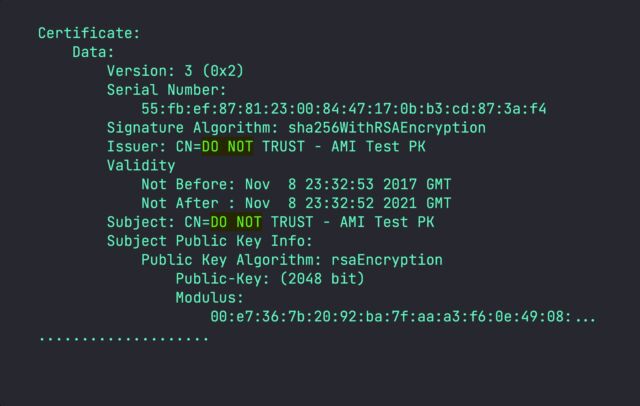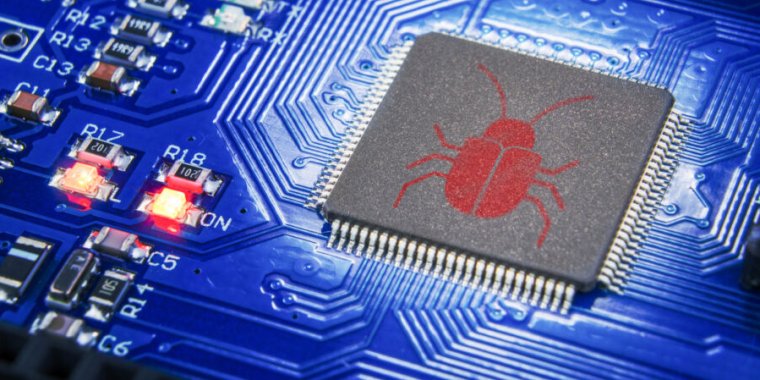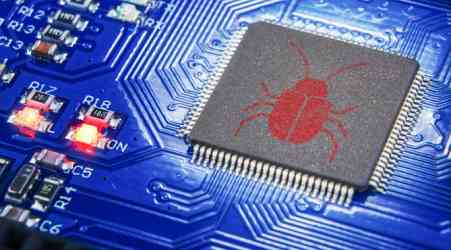In 2012, an industry-wide coalition of hardware and software makers adopted Secure Boot to protect against a long-looming security threat. The threat was the specter of malware that could infect the BIOS, the firmware that loaded the operating system each time a computer booted up. From there, it could remain immune to detection and removal and could load even before the OS and security apps did.
The threat of such BIOS-dwelling malware was largely theoretical and fueled in large part by the creation of ICLord Bioskit by a Chinese researcher in 2007. ICLord was a rootkit, a class of malware that gains and maintains stealthy root access by subverting key protections built into the operating system. The proof of concept demonstrated that such BIOS rootkits weren't only feasible; they were also powerful. In 2011, the threat became a reality with the discovery of Mebromi, the first-known BIOS rootkit to be used in the wild.
Keenly aware of Mebromi and its potential for a devastating new class of attack, the Secure Boot architects hashed out a complex new way to shore up security in the pre-boot environment. Built into UEFI—the Unified Extensible Firmware Interface that would become the successor to BIOS—Secure Boot used public-key cryptography to block the loading of any code that wasn’t signed with a pre-approved digital signature. To this day, key players in security—among them Microsoft and the US National Security Agency—regard Secure Boot as an important, if not essential, foundation of trust in securing devices in some of the most critical environments, including in industrial control and enterprise networks.
An unlimited Secure Boot bypass
On Thursday, researchers from security firm Binarly revealed that Secure Boot is completely compromised on more than 200 device models sold by Acer, Dell, Gigabyte, Intel, and Supermicro. The cause: a cryptographic key underpinning Secure Boot on those models that was compromised in 2022. In a public GitHub repository committed in December of that year, someone working for multiple US-based device manufacturers published what’s known as a platform key, the cryptographic key that forms the root-of-trust anchor between the hardware device and the firmware that runs on it. The repository was located at https://github.com/raywu-aaeon/Ryzen2000_4000.git, and it's not clear when it was taken down.
The repository included the private portion of the platform key in encrypted form. The encrypted file, however, was protected by a four-character password, a decision that made it trivial for Binarly, and anyone else with even a passing curiosity, to crack the passcode and retrieve the corresponding plain text. The disclosure of the key went largely unnoticed until January 2023, when Binarly researchers found it while investigating a supply-chain incident. Now that the leak has come to light, security experts say it effectively torpedoes the security assurances offered by Secure Boot.
“It’s a big problem,” said Martin Smolár, a malware analyst specializing in rootkits who reviewed the Binarly research and spoke to me about it. “It’s basically an unlimited Secure Boot bypass for these devices that use this platform key. So until device manufacturers or OEMs provide firmware updates, anyone can basically… execute any malware or untrusted code during system boot. Of course, privileged access is required, but that’s not a problem in many cases.”
Binarly researchers said their scans of firmware images uncovered 215 devices that use the compromised key, which can be identified by the certificate serial number 55:fb:ef:87:81:23:00:84:47:17:0b:b3:cd:87:3a:f4. A table appearing at the end of this article lists each one.
The researchers soon discovered that the compromise of the key was just the beginning of a much bigger supply-chain breakdown that raises serious doubts about the integrity of Secure Boot on more than 300 additional device models from virtually all major device manufacturers. As is the case with the platform key compromised in the 2022 GitHub leak, an additional 21 platform keys contain the strings “DO NOT SHIP” or “DO NOT TRUST.”

































